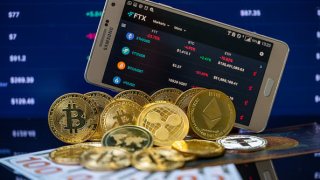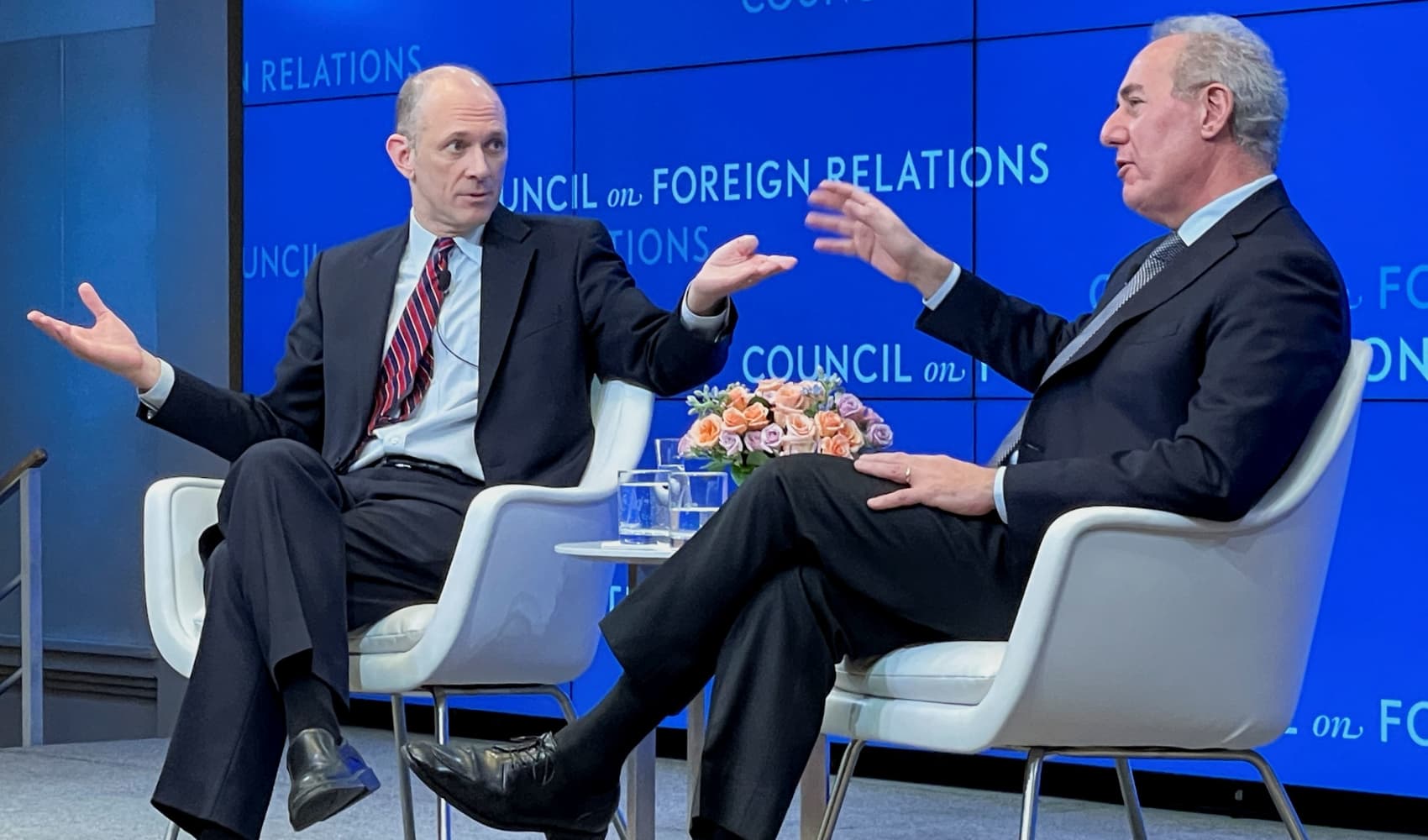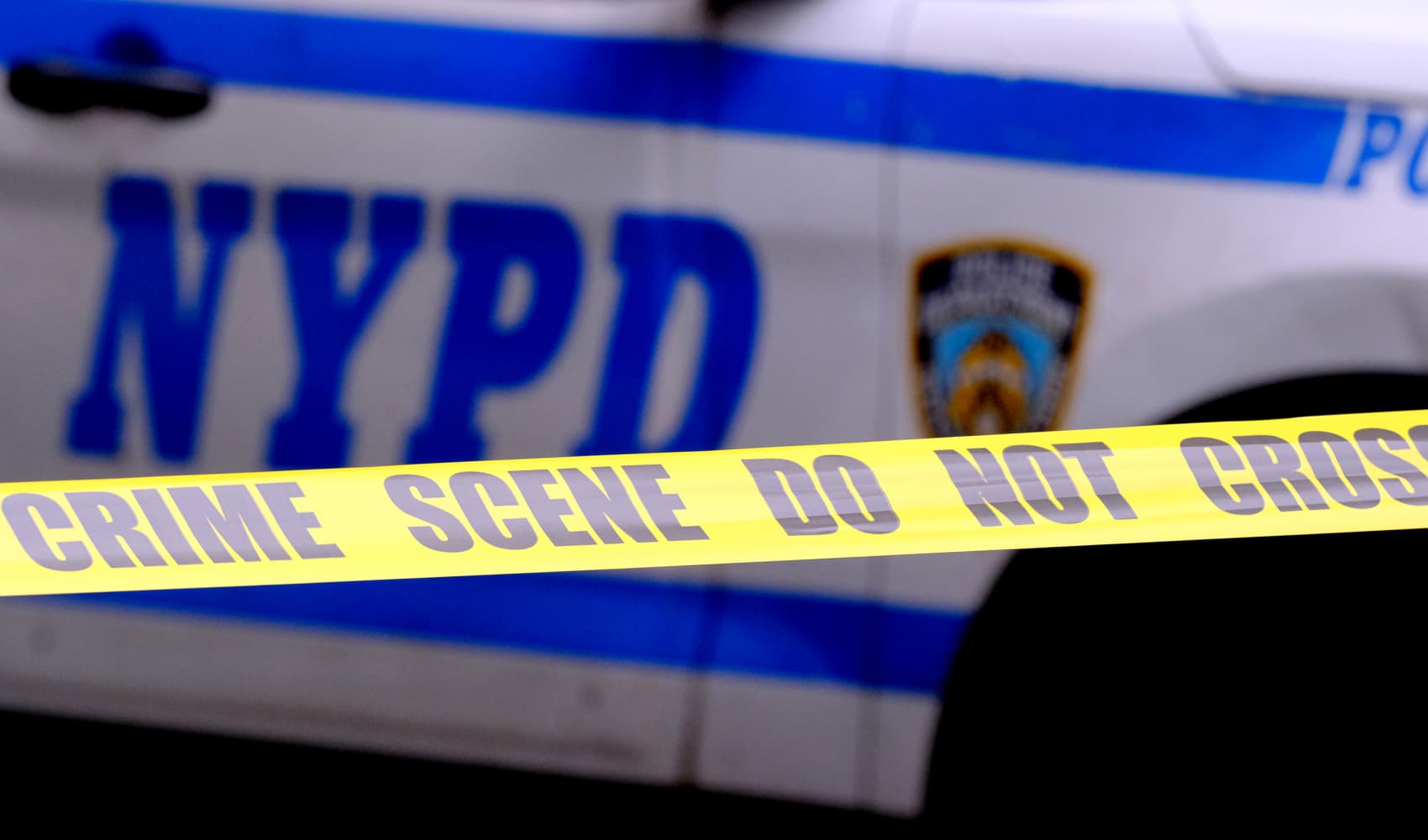
Rob Nichols is the president and CEO of the American Bankers Association and Dennis Kelleher is president and CEO of Better Markets, a Washington-based nonprofit that promotes financial markets reform.
The recent turmoil in the trillion-dollar crypto sector, including FTX's sudden liquidity crisis and spectacular collapse, has updated the concept of a bank run — made famous in movies like "It's a Wonderful Life" and "Mary Poppins." But this time, the run hasn't been on a bank at all.
Instead, many crypto-asset customers had accounts at nonbank crypto firms. When they ran (that is, when they simultaneously rushed to make large-scale withdrawals), the customers found their withdrawals slowed and then frozen by the firms in a desperate attempt to remain solvent. Customers were forced to watch helplessly as their accounts plummeted to zero. This is very similar to what happened at nonbank financial firms during the 2008 financial crash and would have happened when the 2020 pandemic hit if the Fed had not acted so quickly.
The recent bankruptcies of crypto lenders Voyager and Celsius — and at the algorithmic stablecoin TerraUSD — make the risks of nonbanks painfully clear for the consumers who lost billions in uninsured crypto accounts and investors who have lost trillions of dollars. And now, the largely unregulated nonbank FTX, which had multiple crypto business activities spanning the globe, saw $6 billion in withdrawals in 72 hours and has collapsed entirely amid the potential for law enforcement and congressional investigations.
Get Tri-state area news and weather forecasts to your inbox. Sign up for NBC New York newsletters.
The 2008 financial crash and the 2020 pandemic-caused crisis already proved that nonbanks are not mere fringe players in our global financial system; they are critically important and deeply interconnected to the banking system and economy and can threaten financial stability. And they are growing in importance: nonbank financial intermediation (sometimes called "shadow banking") accounts for nearly half of $470 trillion in global financial assets, according to the Financial Stability Board's most recent report.
More recently, the growth of the trillion-dollar crypto sector — with its many asset types, exchanges and wallets, intersecting with mainstream finance in a number of ways — has created a whole new field of unregulated nonbank players.
Our organizations don't always agree on banking policy. But today, as the warning lights blink on the economic dashboard and we confront both persistent inflation and the risk of a recession in the months ahead, we both agree that crypto companies and other nonbanks pose a significant and increasing risk to our financial system that needs to be better understood and regulated.
Money Report
The critical overriding principle to getting the shadow banking system on safer ground is this: apply the same regulatory standards to the same products and services, regardless of origin or the technology involved.
Americans should know that when they engage in any financial activity, be it a checking account or a credit card or a car loan, or invest in a digital asset, that they have the same fundamental consumer, investor and financial stability protections — regardless of who offers the product or service. It wouldn't make sense to say that cars built in a unionized factory must have seatbelts, while cars built in a non-union shop could go seatbelt-free — instead, our auto regulators set uniform standards for vehicles regardless of who makes them, how, or where.
That means the providers of these products — banks and nonbanks alike — should be subject to the same underwriting requirements, the same regulatory and risk management standards, the same cybersecurity and anti-fraud protections, and the same consumer protection standards. Despite our disagreements on some other banking issues, we share this common ground: the same activity should face the same regulation.
The "same risk, same rule" principle ensures a competitive marketplace with a level playing field where incentives for regulatory arbitrage are minimized if not eliminated. If you want to serve consumers through the payments system, through deposit products or loans, or through asset management and trade facilitation, you should be subject to the same requirements as all other participants.
This principle also provides policymakers a better window on systemic risk—making sure that we don't let an economy-wrecking level of risk-taking build up outside of the regulated banking sector as grievously happened in 2008. Like the proverbial man searching for his glasses under the streetlight "because that's where the light is," evaluating financial stability shouldn't mean that policymakers should only look for systemic risks in the entities they directly regulate.
Finally, this principle doesn't mean that a company has to be a bank to offer financial products or services. That's a decision that involves business models, funding, governance and other strategic considerations. There are good reasons for financial intermediaries to be banks, and there are legitimate reasons for some companies to offer financial products or services outside the banking system.
But while the institution type may vary, the safeguards must be aligned. Innovation in the financial sector is critical to maximizing benefits for consumers, and fair, properly and consistently regulated competition can drive this process forward. But consumers also expect that the rules that govern providers — whether bank or nonbank — protect them and financial stability.
As the unseen risks of more unregulated nonbanks materialize and the shadows of an economic recession lengthen around the world, it's more critical than ever to bring crypto and other shadow banks into the light.
Also on CNBC
- Ukraine war live updates: New missile attacks hits Ukraine; explosions reported at Russian air bases
- Op-ed: Authoritarian rulers suffered new setbacks in 2022. Here's what the democratic world needs to do to seize the momentum
- Biden condemns antisemitism as Ye praises Hitler days after dinner with Trump






